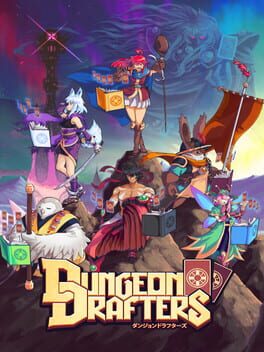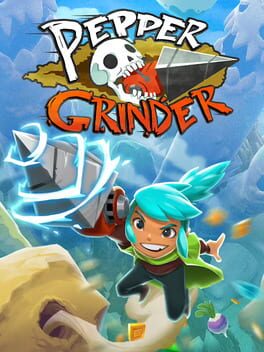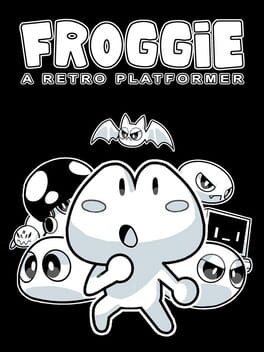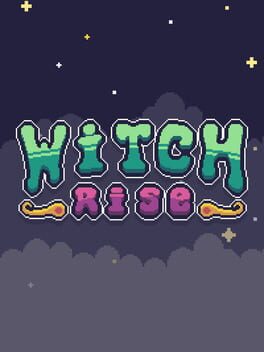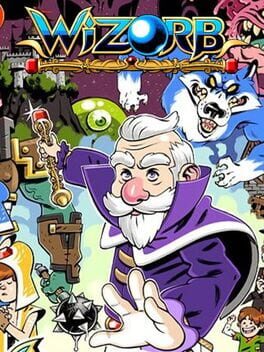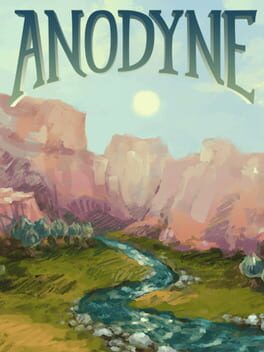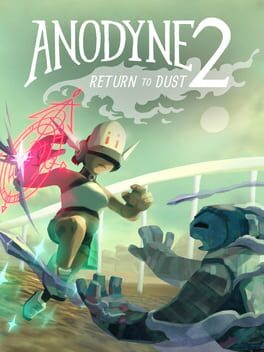AlexTheGerman
2024
Roguelite meets poker meets... the mad urge to try one's luck against the mercilessness of mathematical probabilities. To the wrong players, Balatro may become an addiction - to the right players, it certainly will.
Pros:
+ the simple presentation is perfectly realized
+ the gameplay loop is simple but addicting
+ no knowledge of card games or poker is necessary
+ gameplay is designed to offer various playstyles
+ joker system is a constant battle of risk and reward
+ huge number of jokers allows for plenty of experimentation
+ jokers and consumables can be sold and
+ option to skip fights extends the playstyle choices
+ unlocking new cards is a great motivator
+ challenge mode is a nice palatee cleanser between runs
+ the sole music track somehow manages to never get annoying
Cons:
- the tutorial is barebones and skips important aspects of the game
- joker and boss descriptions are often uninformative
- joker interactions cannot be inferred without trying them out
- higher difficulties are unbeatable without the right jokers
- boss blinds seem to be randomized, leading to unwinnable situations
- some of the bosses are not balanced and can damage a run beyond repair
- not all hands are equally viable for a winning run (straights are not worth it)
- some bugs and technical issue still have to be ironed out
Playtime: 48 hours with almost all decks unlocked but still quite a few difficulty levels to overcome.
Magic Moment: Getting the Egg joker, which periodically increases in sell price, and the Joker that adds the sell value of your jokers to your multiplayer in the first ante. Edging out a win on the final ante with a hail mary discard.
Verdict:
Balatro's deceptively simple look belies a surprisingly complex, satisfying riff on Texas hold 'em poker, combined with the usual rogue-lite chorus of "just one more run". The game constantly calls for meaningful choices that can turn a run on its head, even if the number of viable combinations of poker hands and jokers gets smaller and smaller as the difficulties increase. The challenge mode, however, is a nice addition that extends the possible playstyles even more, at least for players willing to really grind their teeth on the game's inherently frustrating randomness factor and often unclear joker interactions.
In any case, Balatro is a must play for roguelike and card game fans alike, and more proof that simple ideas can make for the best games. Play it, but know what you are getting into.
Pros:
+ the simple presentation is perfectly realized
+ the gameplay loop is simple but addicting
+ no knowledge of card games or poker is necessary
+ gameplay is designed to offer various playstyles
+ joker system is a constant battle of risk and reward
+ huge number of jokers allows for plenty of experimentation
+ jokers and consumables can be sold and
+ option to skip fights extends the playstyle choices
+ unlocking new cards is a great motivator
+ challenge mode is a nice palatee cleanser between runs
+ the sole music track somehow manages to never get annoying
Cons:
- the tutorial is barebones and skips important aspects of the game
- joker and boss descriptions are often uninformative
- joker interactions cannot be inferred without trying them out
- higher difficulties are unbeatable without the right jokers
- boss blinds seem to be randomized, leading to unwinnable situations
- some of the bosses are not balanced and can damage a run beyond repair
- not all hands are equally viable for a winning run (straights are not worth it)
- some bugs and technical issue still have to be ironed out
Playtime: 48 hours with almost all decks unlocked but still quite a few difficulty levels to overcome.
Magic Moment: Getting the Egg joker, which periodically increases in sell price, and the Joker that adds the sell value of your jokers to your multiplayer in the first ante. Edging out a win on the final ante with a hail mary discard.
Verdict:
Balatro's deceptively simple look belies a surprisingly complex, satisfying riff on Texas hold 'em poker, combined with the usual rogue-lite chorus of "just one more run". The game constantly calls for meaningful choices that can turn a run on its head, even if the number of viable combinations of poker hands and jokers gets smaller and smaller as the difficulties increase. The challenge mode, however, is a nice addition that extends the possible playstyles even more, at least for players willing to really grind their teeth on the game's inherently frustrating randomness factor and often unclear joker interactions.
In any case, Balatro is a must play for roguelike and card game fans alike, and more proof that simple ideas can make for the best games. Play it, but know what you are getting into.
2023
A roguelike deck builder with plenty of customization, cute character designs, and excellent pixel art? Sounds like my kind of game, but after more hours than I like to admit, Dungeon Drafters is one thing first and foremost: a hardcore experience for masochist.
Pros:
+ excellent pixel art and character designs
+ deck building offers plenty of customization
+ changing between playstyles is quick and easy
+ checkered world design is intuitive and quick to understand
+ five different biomes with diverse challenges are available from the start
+ town quests invite and reward experimentation
+ curio system offers even more approaches to situations
+ final dungon can be tackled at any moment
+ bosses are diverse and smartly designed
+ side-quests and minigames are fun
Cons:
- difficulty curve is extremely steep
- initial pick of starter deck is extremely important
- town portal is not available from the beginning
- enemies and hostile gizmos are too plentiful and powerful
- most curios are useless or even increase the difficulty
- bonus room unlocks are important but impossible for most builds
- final area and boss are frustratingly difficulty
- jazzy soundtrack is unique but repeats too quickly
- plenty of glitches, UI, and game logic issues
- rough technical performance on Switch
Playtime: Over 40 hours, with most curios, cards, and quests unlocked. Regular ending acquired.
Magic Moment: Unlocking a late-stage card that allows to kill many enemies in one turn, only to realize it works not as intended. Finally beating the final boss of countless of hours, only to realize there is a hidden ending that I can just look up.
Verdict:
Dungeon Drafters offers a unique mix of 16-bit visuals, deck building and roguelike elements, but its extremely high difficulty curve and lack of hand holding makes it a real challenge that delights and frustrates in equal measure. Facing a dozen enemies in small rooms and and having to check the attack patterns and sequence of action on each enemy becomes cumbersome and time consuming quickly, and elements intended to allow for greater customization like curios or health increase items don't scale quickly enough with the ever-increasing challenges. A round of fishing or playing a logic minigame helps take the steam off, sure, but the next death is always around the corner.
In short, this is a hardcore experience intended for players willing to deeply engage with its systems. Everyone else will be killed by the now-obligatory tutorial boss, only to realize that they are in for a world of cruel randomization, icy floors, and pain.
Check it out if you like the look, but don't say I didn't warn you.
Pros:
+ excellent pixel art and character designs
+ deck building offers plenty of customization
+ changing between playstyles is quick and easy
+ checkered world design is intuitive and quick to understand
+ five different biomes with diverse challenges are available from the start
+ town quests invite and reward experimentation
+ curio system offers even more approaches to situations
+ final dungon can be tackled at any moment
+ bosses are diverse and smartly designed
+ side-quests and minigames are fun
Cons:
- difficulty curve is extremely steep
- initial pick of starter deck is extremely important
- town portal is not available from the beginning
- enemies and hostile gizmos are too plentiful and powerful
- most curios are useless or even increase the difficulty
- bonus room unlocks are important but impossible for most builds
- final area and boss are frustratingly difficulty
- jazzy soundtrack is unique but repeats too quickly
- plenty of glitches, UI, and game logic issues
- rough technical performance on Switch
Playtime: Over 40 hours, with most curios, cards, and quests unlocked. Regular ending acquired.
Magic Moment: Unlocking a late-stage card that allows to kill many enemies in one turn, only to realize it works not as intended. Finally beating the final boss of countless of hours, only to realize there is a hidden ending that I can just look up.
Verdict:
Dungeon Drafters offers a unique mix of 16-bit visuals, deck building and roguelike elements, but its extremely high difficulty curve and lack of hand holding makes it a real challenge that delights and frustrates in equal measure. Facing a dozen enemies in small rooms and and having to check the attack patterns and sequence of action on each enemy becomes cumbersome and time consuming quickly, and elements intended to allow for greater customization like curios or health increase items don't scale quickly enough with the ever-increasing challenges. A round of fishing or playing a logic minigame helps take the steam off, sure, but the next death is always around the corner.
In short, this is a hardcore experience intended for players willing to deeply engage with its systems. Everyone else will be killed by the now-obligatory tutorial boss, only to realize that they are in for a world of cruel randomization, icy floors, and pain.
Check it out if you like the look, but don't say I didn't warn you.
2024
Long-awaited, hotly-anticipated, warmly received. Peppper Grinder is one of those indies that were beloved from the start, but now that it's finally out, it ... really grinds my gears.
Pros:
+ central grinder mechanic is fun to use
+ level design is good to great throughout
+ new gameplay elements are introduced regularly
+ collectables are smartly hidden
+ one playthrough is quick and easy
+ the final boss is an adequate skill check
Cons:
- turning on a dime is buggy as hell
- a general lack of polish is felt throughout
- visual look is muddy and blurry
- regular jump is imprecise and unfun to use
- hook mechanic barely works
- boss fights all play alike
- no option to restart from a checkpoint...
- ...which makes collectable hunting frustrating
- collectables only have one useful use
Playtime: 6 hours, all gold coins collected.
Blagic Moments: Getting stuck in a random piece of scenery, only to have to restart the game. Getting handed the hook out of nowhere, only to start hating it immediately.
Verdict:
Pepper Grinder is my first big disappointment of the year. It's a game that lives and dies on its mechanics, but if those very mechanics feel unpolished and imprecise, the outcome is as expected. Even if progress is quick and each new level introduces smart new challenges, you still have to look at the blurry, low-poly look for your entire playthrough, while having to face repetitive boss fights in regular intervals.
I would advise against playing this. If you yearn for something similar, play Flinthook or Super Meat Boy instead.
Pros:
+ central grinder mechanic is fun to use
+ level design is good to great throughout
+ new gameplay elements are introduced regularly
+ collectables are smartly hidden
+ one playthrough is quick and easy
+ the final boss is an adequate skill check
Cons:
- turning on a dime is buggy as hell
- a general lack of polish is felt throughout
- visual look is muddy and blurry
- regular jump is imprecise and unfun to use
- hook mechanic barely works
- boss fights all play alike
- no option to restart from a checkpoint...
- ...which makes collectable hunting frustrating
- collectables only have one useful use
Playtime: 6 hours, all gold coins collected.
Blagic Moments: Getting stuck in a random piece of scenery, only to have to restart the game. Getting handed the hook out of nowhere, only to start hating it immediately.
Verdict:
Pepper Grinder is my first big disappointment of the year. It's a game that lives and dies on its mechanics, but if those very mechanics feel unpolished and imprecise, the outcome is as expected. Even if progress is quick and each new level introduces smart new challenges, you still have to look at the blurry, low-poly look for your entire playthrough, while having to face repetitive boss fights in regular intervals.
I would advise against playing this. If you yearn for something similar, play Flinthook or Super Meat Boy instead.
Rarely has a combination of game and logo been more fitting: Froggie is a simple retro platformer with a cute frog jumping around, not more, not less. And sometimes, that's just what you need.
Pros:
+ a short and sweet retro platformer
+ restarts after death are quick
+ checkpoints are placed fairly
+ difficulty curve rises slowly
Cons:
- screen transitions are slow and juddery
- hitboxes are a little rough
- enemy behavior is sometimes erratic
- jump mechanics are a bit too floaty
- EDM soundtrack is completely out of place
Playtime: 1 hour, 30 minutes, all levels cleared.
Verdict:
A perfectly fine platformer without new or unique ideas that simply does what it sets out to do. However, if you need a palate clenser between more complex games, you could certainly do worse.
Pros:
+ a short and sweet retro platformer
+ restarts after death are quick
+ checkpoints are placed fairly
+ difficulty curve rises slowly
Cons:
- screen transitions are slow and juddery
- hitboxes are a little rough
- enemy behavior is sometimes erratic
- jump mechanics are a bit too floaty
- EDM soundtrack is completely out of place
Playtime: 1 hour, 30 minutes, all levels cleared.
Verdict:
A perfectly fine platformer without new or unique ideas that simply does what it sets out to do. However, if you need a palate clenser between more complex games, you could certainly do worse.
2023
Weird title, weird logo, weird game? Unfortunately, Witch Rise is just another first-person dungeon crawler without any fresh ideas.
Pros:
+ nice retro look and old-school feel
+ enemy sprites are cute
+ not too challenging
+ difficulty scales naturally
+ a quick and breezy experience
Cons:
- close enemy attacks lack hit feedback
- even when upgraded, mana refills too slowly
- weapon upgrades make no difference on the gameplay
- upgrades are too expensive
- boss fights lack depth
- breakable walls are too hard to see
Playtime: 2 hours, with the entire map explored and almost all chests opened.
Blagic Moment: Entering a shop for the first time to realize you are never going to afford all of their stuff. Just like real life!
Verdict:
Witch Rise is a perfectly okay entry to its genre, but also offers nothing new or exciting that would make me recommend it.
If you yearn for the look and feel of old-school, first-person dungeon crawlers with sprites, I would recommend Eldritch instead, witch does a lot more with the same ingredients.
Pros:
+ nice retro look and old-school feel
+ enemy sprites are cute
+ not too challenging
+ difficulty scales naturally
+ a quick and breezy experience
Cons:
- close enemy attacks lack hit feedback
- even when upgraded, mana refills too slowly
- weapon upgrades make no difference on the gameplay
- upgrades are too expensive
- boss fights lack depth
- breakable walls are too hard to see
Playtime: 2 hours, with the entire map explored and almost all chests opened.
Blagic Moment: Entering a shop for the first time to realize you are never going to afford all of their stuff. Just like real life!
Verdict:
Witch Rise is a perfectly okay entry to its genre, but also offers nothing new or exciting that would make me recommend it.
If you yearn for the look and feel of old-school, first-person dungeon crawlers with sprites, I would recommend Eldritch instead, witch does a lot more with the same ingredients.
2019
I know, I know, I'm terribly late to this party, which means I can only repeat what most everyone else has been saying for years: A Short Hike is a wonderful game and a real highlight among the already great amount of indie gems on the Switch.
Pros:
+ island setting creates a wonderfully cozy atmosphere
+ beautiful visuals and vistas to discover
+ grainy filter can - and should be! - turned off
+ characters and their dialog are cute and memorable
+ number of diverse quests can be solved...
+ ...and their rewards usually help with discovery
+ lots of hidden nooks and crannies to explore
+ runtime is short and perfectly tailored to the design
+ almost flawless technical performance on Switch
Cons:
- no quest or dialog log
- item management is a bit cumbersome
- no guidance system for the more complex challenges
- story never really soars to the heights of the gameplay
- ending is too abrupt
Playtime: 3 hours and 40 minutes, with all extra feathers discovered. Some achievements still unachieved, which means I have a great reason to come back to this at some point.
Magic Moments: Understanding the size of the map and the way the camera hides secrets. Finding treasure after solving a riddle. Soaring through the skies from the highest point of the map. Motorboating, of course.
Verdict:
Despite what its name might suggest, A Short Hike leaves a big impression. From the simple but memorable visuals to the deliberate design centered on slowly increasing but always engaging challenges, it's a game that invites you to enjoy your time with it. With its focus on discovery and atmosphere, it shares elements with games like Breath of the Wild, while smartly eschewing any sort of violence or combat elements to create its cozy feel.
Indeed, a real gem of a game that I would recommend without reservations.
Pros:
+ island setting creates a wonderfully cozy atmosphere
+ beautiful visuals and vistas to discover
+ grainy filter can - and should be! - turned off
+ characters and their dialog are cute and memorable
+ number of diverse quests can be solved...
+ ...and their rewards usually help with discovery
+ lots of hidden nooks and crannies to explore
+ runtime is short and perfectly tailored to the design
+ almost flawless technical performance on Switch
Cons:
- no quest or dialog log
- item management is a bit cumbersome
- no guidance system for the more complex challenges
- story never really soars to the heights of the gameplay
- ending is too abrupt
Playtime: 3 hours and 40 minutes, with all extra feathers discovered. Some achievements still unachieved, which means I have a great reason to come back to this at some point.
Magic Moments: Understanding the size of the map and the way the camera hides secrets. Finding treasure after solving a riddle. Soaring through the skies from the highest point of the map. Motorboating, of course.
Verdict:
Despite what its name might suggest, A Short Hike leaves a big impression. From the simple but memorable visuals to the deliberate design centered on slowly increasing but always engaging challenges, it's a game that invites you to enjoy your time with it. With its focus on discovery and atmosphere, it shares elements with games like Breath of the Wild, while smartly eschewing any sort of violence or combat elements to create its cozy feel.
Indeed, a real gem of a game that I would recommend without reservations.
2011
While Wizorb is an honest attempt at an update to the age-old formula of breaking down bricks until there are no more bricks to break, the final product is riddled with more than just a few holes.
Pros:
+ colorful pixel art style that looks good on a big TV
+ magic system is an fresh update to the Breakout formula
+ levels hide shops and bonus stages
+ bosses require specific strategies
+ levels can be replayed and money can be farmed
Cons:
- difficulty is much too high, mostly because...
- ...lives and magic don't get replenished between levels
- life system feels anachronistic and at odds with the save system
- secondary magic is cumbersome to use
- bought items are expensive and immediately lost upon dying
- levels all feel alike and later ones are mostly luck-based
- town building system has almost no bearing on the gameplay
- the entire thing feels like a lazy mobile game
Playtime: 9 hours with final boss beaten and copius use of save-scamming towards the end, no extra content explored.
Blagic Moment: Dying to a boss, only to having to replay everything leading up to him. Realizing that to this day, there is still no worthwhile update to Breakout
Verdict:
No idea what reviewers were smoking back in the days of the Xbox 360 when this came out originally and received rave reviews, but Wizorb is at best a failed attempt at Breakout with a few good ideas that never really coverge. The high difficulty combined with a terrible life and save system lead to more frustration than anyone should have to suffer through, and there is never a moment where you feel like this couldn't have been produced in the days of the SNES. So why should anyone play this on Switch?
The answer is, they shouldn't, and the wait for a really modern, fun take on breaking blocks with a Pong paddle continues.
Pros:
+ colorful pixel art style that looks good on a big TV
+ magic system is an fresh update to the Breakout formula
+ levels hide shops and bonus stages
+ bosses require specific strategies
+ levels can be replayed and money can be farmed
Cons:
- difficulty is much too high, mostly because...
- ...lives and magic don't get replenished between levels
- life system feels anachronistic and at odds with the save system
- secondary magic is cumbersome to use
- bought items are expensive and immediately lost upon dying
- levels all feel alike and later ones are mostly luck-based
- town building system has almost no bearing on the gameplay
- the entire thing feels like a lazy mobile game
Playtime: 9 hours with final boss beaten and copius use of save-scamming towards the end, no extra content explored.
Blagic Moment: Dying to a boss, only to having to replay everything leading up to him. Realizing that to this day, there is still no worthwhile update to Breakout
Verdict:
No idea what reviewers were smoking back in the days of the Xbox 360 when this came out originally and received rave reviews, but Wizorb is at best a failed attempt at Breakout with a few good ideas that never really coverge. The high difficulty combined with a terrible life and save system lead to more frustration than anyone should have to suffer through, and there is never a moment where you feel like this couldn't have been produced in the days of the SNES. So why should anyone play this on Switch?
The answer is, they shouldn't, and the wait for a really modern, fun take on breaking blocks with a Pong paddle continues.
2013
This game has fhaunted me since it first came out: I always found its weird title and obvious parallels to classic, top-down Zeldas intriguing, but Anodyne also carried this air of the forbidden, perhaps occult that I could never really grasp. After finishing it, I now know why.
Pros:
+ the overall gameplay is a good emulation of 2D Zeldas
+ the weird atmosphere is memorable and rare in the genre
+ a lot of secrets and optional collectables to discover...
+ especially in the post-game, which adds a game-breaking item
+ the entire soundtrack is a certified banger
+ the soundscape harkens back to old survival horror games
+ frequent references to other games and franchises
+ the visual presentation is distinct...
Cons:
- ...but feels unpolished and limiting
- weird aspect ratio and jarring screen transitions
- later story sections necessitate tasteless violent actions
- map gives little information and cannot be edited
- frequent glitches and bugs give an unfinished feel
- jumping is broken and makes sequence breaking possible
- broom combat is sluggish and unsatisfying
- final climactic events feel abridged and crude
- the writing is a bit too obtuse for my taste
Playtime: 6 hours, with some usage of a guide in the middle. All regular cards and upgrades acquired.
Magic Moment: Pushing someone off a bridge in a certain section, only to jump into a strange new world.
Blagic Moments: Fighting the later bosses and beating them in seconds as a result of the world. Getting to the end, only to find out the most obvious twist you could think off.
Verdict:
Anodyne is a weird game, and it wears its weirdness with pride. From the obtuse storyline to the mystifying characters cobbled together from different fantasy worlds, you never really know what game you are playing. However, that atmosphere and and feeling of entering a liminal space is the game's greatest strengths.
From a pure gameplay perspective, though, most of the systems like movement or combat feel unfinished or unsatisfying at best. But whenever I felt like a puzzle or a combat situation was frustrating, another banger song pulled me back in. And so I stuck with it, against all odds.
As a result, this is one of those games where the journey is the destination, and I would only recommend it to players who are willing to bite their way through the jank. But those people may actually end up loving it.
Pros:
+ the overall gameplay is a good emulation of 2D Zeldas
+ the weird atmosphere is memorable and rare in the genre
+ a lot of secrets and optional collectables to discover...
+ especially in the post-game, which adds a game-breaking item
+ the entire soundtrack is a certified banger
+ the soundscape harkens back to old survival horror games
+ frequent references to other games and franchises
+ the visual presentation is distinct...
Cons:
- ...but feels unpolished and limiting
- weird aspect ratio and jarring screen transitions
- later story sections necessitate tasteless violent actions
- map gives little information and cannot be edited
- frequent glitches and bugs give an unfinished feel
- jumping is broken and makes sequence breaking possible
- broom combat is sluggish and unsatisfying
- final climactic events feel abridged and crude
- the writing is a bit too obtuse for my taste
Playtime: 6 hours, with some usage of a guide in the middle. All regular cards and upgrades acquired.
Magic Moment: Pushing someone off a bridge in a certain section, only to jump into a strange new world.
Blagic Moments: Fighting the later bosses and beating them in seconds as a result of the world. Getting to the end, only to find out the most obvious twist you could think off.
Verdict:
Anodyne is a weird game, and it wears its weirdness with pride. From the obtuse storyline to the mystifying characters cobbled together from different fantasy worlds, you never really know what game you are playing. However, that atmosphere and and feeling of entering a liminal space is the game's greatest strengths.
From a pure gameplay perspective, though, most of the systems like movement or combat feel unfinished or unsatisfying at best. But whenever I felt like a puzzle or a combat situation was frustrating, another banger song pulled me back in. And so I stuck with it, against all odds.
As a result, this is one of those games where the journey is the destination, and I would only recommend it to players who are willing to bite their way through the jank. But those people may actually end up loving it.
I couldn't even bring myself to playing this in earnest: I greatly dislike the look, the controls feel wobbly, the writing feels overdone from the get-go, and offering only few 2D sequences feels like a disconnect from why people played the first one.
Also, I'm really not a fan of this recent trend of 2D games changing perspective and sometimes even genre with the sequel, and Anodyne 2 is no exception. Now that indie developers have the technology to emulate the ugly, washed out graphic style of the PS1, playing a game like this feels like a step backwards instead of forwards.
Most egregiously, though, starting the game with a direct message from the makers that literally explain the themes of the game you are about to play is a graceless, one might say tasteless decision even, and one that made me quit the game immediately.
Maybe one day, there will be a proper sequel to Anodyne. I'll be there.
Also, I'm really not a fan of this recent trend of 2D games changing perspective and sometimes even genre with the sequel, and Anodyne 2 is no exception. Now that indie developers have the technology to emulate the ugly, washed out graphic style of the PS1, playing a game like this feels like a step backwards instead of forwards.
Most egregiously, though, starting the game with a direct message from the makers that literally explain the themes of the game you are about to play is a graceless, one might say tasteless decision even, and one that made me quit the game immediately.
Maybe one day, there will be a proper sequel to Anodyne. I'll be there.

